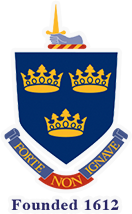Religious Studies
The right to withdraw from RE:
Religion and belief have become more visible in public life in recent years, making it important that all young people should have an opportunity to engage in RE. However, parents/carers may request that their child be excused from all or part of the religious education (RE) provided. No reasons need be given.
Curriculum Overview
Key Stage 3 (KS3):
Year 7: Seven times every two weeks as part of the Integrated Curriculum. This includes History, Geography and Religious Studies (RS). Learners will study a wide range of topics covering The Romans, Buddhism, Geographical skills and many others areas. In Year 7 learners are also encouraged to develop the key skills in these areas which will support their learning throughout KS3.
Year 8: Six times a fortnight on a rotation basis with Geography and History subjects. The year covers Hinduism, Equality, Ethics and Caring for the Planet.
Year 9: Twice a fortnight. Learners begin with studying 'How Does Growing Up Bring Responsibilities and Commitments'. This unit looks at how religions perceive growing up to become an adult, as well as rites of passage. Learners will then go onto beliefs about the Afterlife and Human Mortality, this unit includes Humanism. Learners then have a GCSE model of Religion, Crime and Punishment to give a flavour of the skills they will need for GCSE Religious Studies.
In Years 7 and 8 learners are taught in mixed ability form groups while in Year 9 they are streamed in 'Discover Subjects'.
Key Stage 4 (KS4): Mixed ability groups study the AQA specification over five lessons a fortnight
Paper 1: Christianity and Islam Beliefs, Teachings and Practices. This is an in depth look at both religions. It is taught throughout Year 10 and Year 11 with basic source analysis skills being developed as well as various methods for revision and long-term retention of information.
Paper 2: Thematic Studies including Relationships and Families, Religion and Life, The Existence of God and Revelation, Religion, Peace and Conflict. These topics look into how religions see the world around us and the differences and similarities between certain religions. All of these topics further develop learners’ source analysis skills and empower them with the finer techniques needed for the final examinations.
AO1: Demonstrate knowledge and understanding of religion and beliefs including: beliefs, practices and sources of authority; influence on individuals, communities and societies; similarities and differences within and / or between religions and beliefs.
AO2: Analyse and evaluate aspects of religion and belief, including their significance and influence.
Core RS for Year 10 and Year 11 consists of one hour a fortnight of non-examined study. This aims to provide learners with knowledge and skills to extend and deepen and analyse their knowledge and understanding of religions and worldviews. They will also be given the opportunity to research and investigate the influence and impact of religions and worldviews.
The Religious Studies long term plan is available here.
The Religious Studies Learning Journey is available here.
The GCSE Religious Studies Learning Journey is available here.


